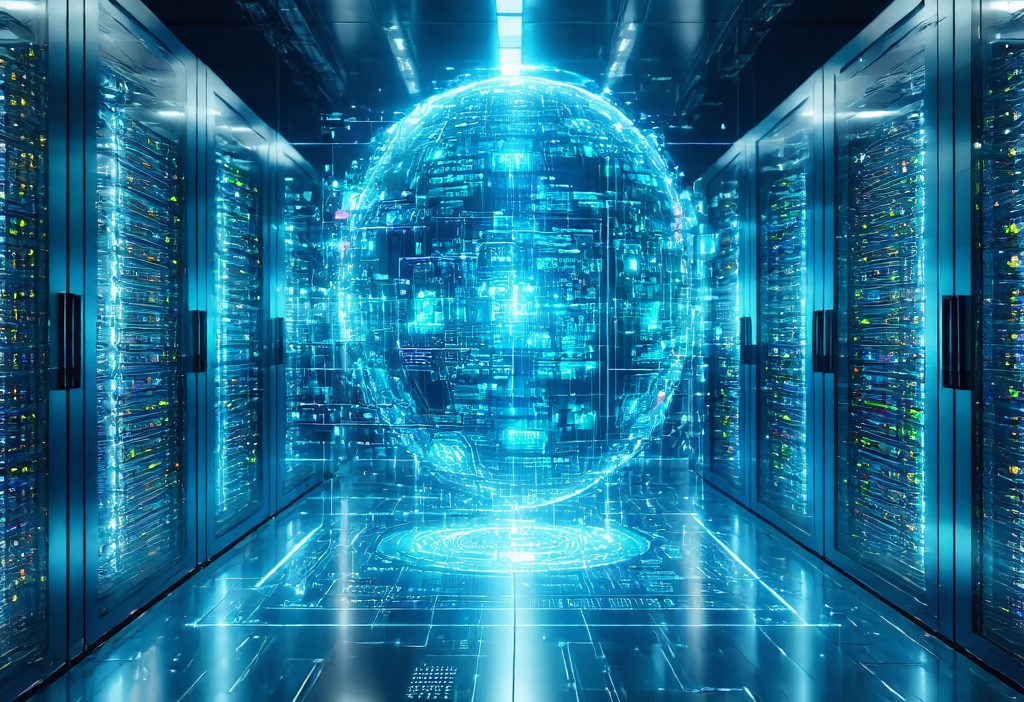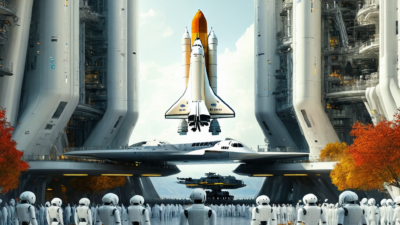Artificial Intelligence in 2025: A Glimpse into the Future
As we stand at the precipice of 2025, artificial intelligence (AI) has evolved from a niche technological advancement to an integral part of our daily lives. This blog post delves into the transformative power of AI, exploring its impact on industries, ethical considerations, and futuristic applications.
The Evolution of AI: A Journey Through Innovation
AI has come a long way since its inception. From rudimentary algorithms to sophisticated neural networks capable of deep learning, the journey has been nothing short of remarkable. Today, AI powers everything from virtual assistants like Siri and Alexa to cutting-edge medical diagnostics and autonomous vehicles.
Revolutionizing Industries: How AI is Transforming Business Landscapes
The integration of AI into various sectors has been a game-changer. Here are some key areas where AI has made a significant impact:
- Healthcare: AI-driven diagnostic tools have improved accuracy in detecting diseases, leading to earlier interventions and better patient outcomes.
- Finance: Algorithmic trading and fraud detection systems powered by AI have revolutionized the financial sector, ensuring safer transactions and smarter investments.
- Retail: Personalized shopping experiences and inventory management systems leverage AI to meet consumer demands efficiently.
The ability of AI to process vast amounts of data quickly has been a cornerstone in these transformations. By identifying patterns and predicting trends, businesses can make informed decisions with unprecedented speed and accuracy.
AI and the Ethical Quagmire: Navigating Uncharted Territories
While AI presents immense opportunities, it also raises ethical concerns that demand attention:
- Data Privacy: The collection and use of personal data by AI systems have sparked debates about privacy rights and data security.
- Bias and Fairness: Ensuring that AI algorithms are free from bias is crucial to prevent discrimination and unfair treatment in areas like hiring and lending.
- Job Displacement: Automation driven by AI has the potential to disrupt job markets, necessitating strategies for workforce retraining and economic adaptation.
Addressing these ethical challenges is essential to ensure that AI benefits society as a whole without compromising fundamental values. Collaborative efforts between policymakers, technologists, and ethicists are pivotal in navigating this complex landscape.
The Future of Work: Embracing AI-Driven Opportunities
As AI continues to evolve, the future of work is poised for significant transformation. While certain jobs may become obsolete, new opportunities will emerge, requiring a workforce equipped with skills that complement AI capabilities.
Here are some trends shaping the future of employment:
- Automation and Efficiency: Routine tasks are increasingly being automated, allowing employees to focus on creative and strategic roles that require human ingenuity.
- Lifelong Learning: The rapid pace of technological change demands continuous upskilling and reskilling to remain competitive in the job market.
- Hybrid Workforce: A blend of human and AI-driven workforces will become more common, with machines handling repetitive tasks while humans tackle complex decision-making processes.
The key to thriving in this evolving landscape lies in adaptability and a commitment to learning. By embracing these changes, individuals and organizations can unlock the full potential of AI.
Futuristic Applications: AI Beyond Our Imagination
Looking ahead, the possibilities with AI are boundless. Imagine a world where:
- Smart Cities optimize resources and improve quality of life through interconnected systems powered by AI.
- Personalized Education becomes a reality, with adaptive learning platforms tailoring education to individual student needs.
- Sustainable Energy Solutions are developed using AI to predict energy demand and optimize renewable resources effectively.
The convergence of AI with other emerging technologies like quantum computing and nanotechnology opens up avenues for innovation that were once the realm of science fiction. These advancements hold the promise of solving some of humanity’s most pressing challenges, from climate change to healthcare disparities.
Conclusion: Embracing the AI-Driven Future
As we navigate the uncharted territories of 2025 and beyond, artificial intelligence stands as a beacon of innovation and progress. While it presents challenges that require careful consideration, its potential to enhance our lives is immense.
The future of AI lies in responsible development and ethical deployment. By fostering collaboration between diverse stakeholders and embracing lifelong learning, we can harness the power of AI to create a better world for generations to come.
As we stand on this precipice, one thing is clear: the future of artificial intelligence is not just about machines—it’s about how humans and machines can work together to unlock unprecedented possibilities.





